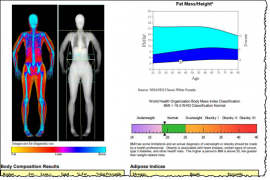What Are Dental Braces?
Several dental hygiene problems could eventually lead to crooked teeth. Examples include early loss of milk teeth, wisdom teeth issues or thumb sucking can all lead to youth teeth losing alignment. Sometimes it just happens as a consequence of nature that your teeth are crooked. The most serious consequence of crooked teeth is the impact on your bite, occlusion, or malocclusion when your teeth fail to connect properly. A specialist field of dentistry called orthodontics is focused on treating crooked teeth and bringing them into alignment.
Why Would You Need Dental Braces?
Orthodontic treatment will be required if you have crooked teeth due to any of the causes mentioned above. If your teeth need alignment then an orthodontist will be able to help by recommending the most suitable type of braces for your unique problems. Treatment may take from as little as 6 months to as much as 4 years.
What Types Of Dental Braces Are Available?
Previously the only option available, traditional braces are composed of metal wires and brackets. They had a negative aesthetic impact but luckily more attractive types of “invisible” braces are now available. The modern braces have vastly improved on the aesthetics aspect and more and more people are taking up braces to realign their teeth.
Ceramic Braces
Ceramic braces are available which are less visible compared to the metal brackets. They however tend to get discoloured over time due to contact with food. They tend to be weaker than the traditional variety and treatment may tend to take longer.
Lingual Braces
The next types of braces are called lingual braces and attach to the surface of the teeth towards the tongue, making them near enough invisible. This, however, is an expensive option as it requires specialized skill and the material cost more. They also have an impact on speech and may lead to soreness of the tongue.
Invisible Braces Or Aligners
Invisible braces are a gentle straightening system that utilises a tooth coloured band to gently straighten and align your teeth, it is kind to your mouth and doesn’t stand out like the more traditional metal braces. They are ideal for adults who are self-conscious about their teeth, want to fix them, and don’t want their treatment to affect their appearance. Worn properly according to instructions they have been known to work in 4-9 months
Can Anyone Have Dental Braces?
Although usually common in very children and teenagers, braces are also available to adults. The reason they are less common in adults is that there are more treatment options available and aesthetics plays a bigger role in adults than it does in younger people.
How Long Do I Have To Wear Dental Braces For?
As the wise saying goes, “how long is a piece of string?” There isn’t really a straight answer to this question. It all depends on the extent of your problem and each individual case is different. Also in young children and teens, it may actually take a shorter time as their teeth are still developing and have a degree of flexibility. The types of braces you use are also a factor in determining how long it takes before the braces can come off. You also may have to wear retainers after the braces come off so that your teeth do not try to assume their old positions. Doctor Harris believes he can have your teeth fixed in an average of 6 months time although it may take anything from 9 months to 2 years depending on the factors mentioned above.
Benefits of Dental Braces
Some of the benefits of braces are listed below and one of the biggest has got to be that it is a treatment available to both children and adults.
- Relatively painless although this may be different depending on the severity of crookedness. Once the initial stages of the treatment have passed they begin to feel natural as you get used to them
- They can restore your smile and self-confidence for adults and teens
- There are so many options available and in some of them and people will not even know you have braces fitted
- Most new types are removable allowing you to observe good oral hygiene
The Cons Of Dental Braces
As with any dental treatment, there are a few negatives to having braces fitted.
- They are a long term treatment option
- There is the potential for teeth decay if you fail to care for your teeth properly as food may become trapped in braces
- They are a relatively costly option because of the material of construction, the skill of the orthodontist involved and the ongoing checkups and adjustments necessary to ensure they work properly
Braces are a very effective method of aligning crooked teeth and although they have to be fitted for a relatively long length of time, the benefits are simply amazing and worth it.






